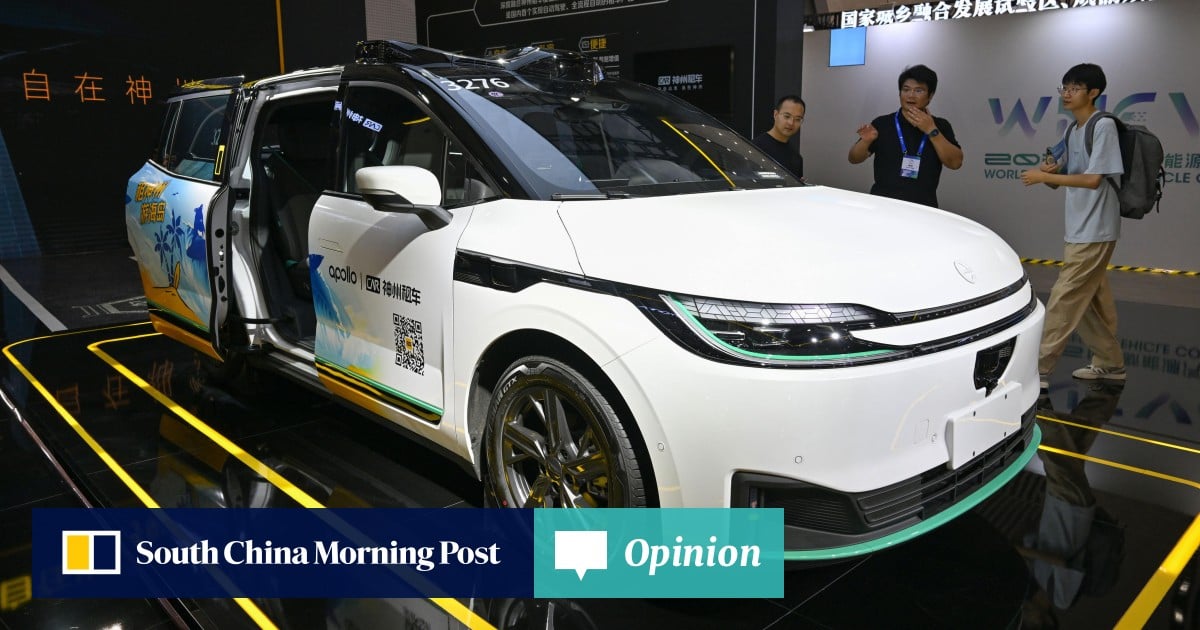
As global competition in autonomous driving intensifies, Europe has emerged as the latest frontier for China’s rapidly advancing self-driving technology. Start-ups such as Pony.ai, WeRide, AutoX, DeepRoute.ai, Momenta and Baidu’s Apollo Go are expanding their trials and partnerships across European cities, transforming Europe into the next stage of technological rivalry.
Advertisement
What began as a domestic race to outpace US giants such as Waymo and Cruise has evolved into a transcontinental contest for market influence, data sovereignty and geopolitical leverage.
China’s decision to pivot towards Europe reflects both opportunity and necessity. Following years of US restrictions on Chinese AI and data-driven technologies, Europe offers an alternative arena where regulations are more fragmented yet innovation-friendly. The European Commission’s mobility strategy calls for large-scale autonomous integration by 2030, while cities such as Hamburg and Gothenburg have established dedicated smart-driving corridors.
For Beijing, Europe’s openness presents a chance to project soft power through technological interdependence, a subtler form of influence compared to infrastructure projects under the Belt and Road Initiative.
Beyond economics, this expansion carries strategic weight. Europe’s automotive ecosystem offers China not just technical collaboration but also legitimacy in shaping future mobility standards. Establishing Chinese autonomous vehicle (AV) systems in the heart of Europe enables Beijing to influence global norms in data handling, safety protocols and AI ethics, fields increasingly tied to digital sovereignty and geopolitical competition.
Advertisement
WeRide has partnered with Bosch to develop a “one-stage” advanced driver assistance system that integrates perception and decision-making into a single process. Meanwhile, Baidu has teamed up with Lyft to roll out its Apollo Go autonomous vehicles in Europe, starting in Germany and the UK by 2026, with Lyft operating the platform and Baidu providing the vehicles and core technology.


